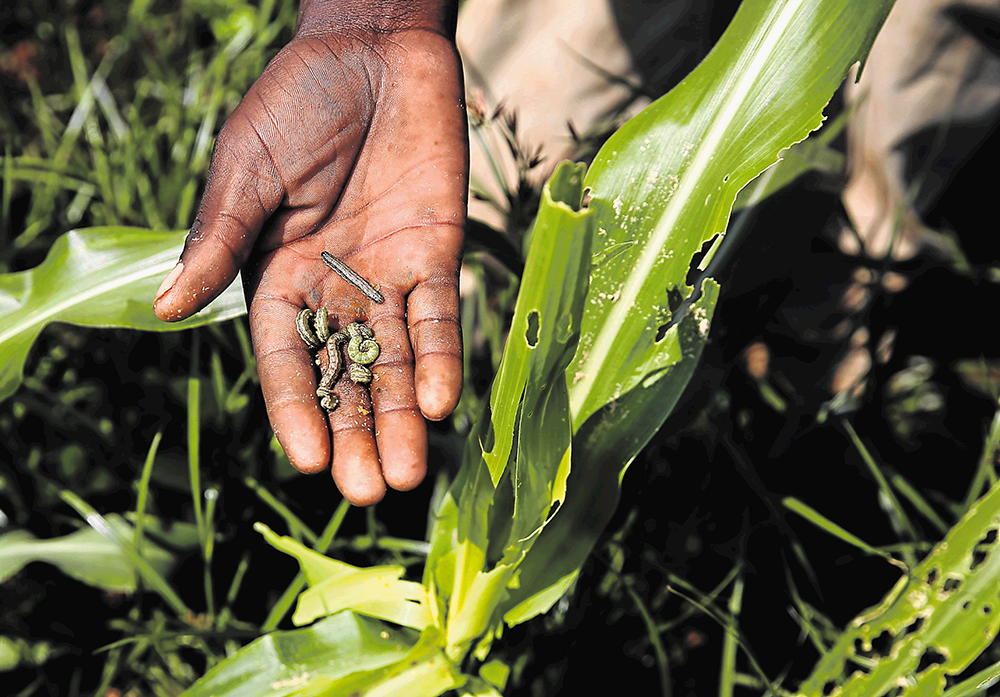
MBALE. After using a temporary pesticide combination to fight against fall armyworm, Farmers in many parts of the country could start smiling after scientists discovered armyworm resistant maize.
According to Uganda’s scientists based at NARO, this could be the lasting solution to the armyworm that has affected more than half of the country posing a significant threat to food security.
Mr Clet Masaga Wandui a crop breeder and scientist also working with the Tropical Institute of Development Initiative said they have developed BT Maize that is resistant to armyworm using genetic approaches.
Mr Masiga was addressing farmers in Mt Elgon sub-region on Banana value chain and biotechnology consultative meeting at Mt Elgon Hotel in Mbale.
He said in order to increase pest control efficacy and delay resistance evolution; a gene pyramiding strategy has been employed in transgenic plants to produce two or more Bt toxins of dissimilar mode of action effective against the armyworm and other pest species.
“Bt Maize has been adopted rapidly and are expected to become even more prevalent in the future but we can’t bring it out for farmers until the National Biotechnology and Bio-safety Bill 2012 is passed into law by parliament,” said Mr Masiga.
Dr Lawrence Owere, the Director Buginyanya Zonal Agricultural Research, and Development Institute (BugiZARDI) subsequently urged people to drop the misguided resentment towards agricultural biotechnology and genetic modification of crops.
“There have been a lot of debates in the country that symbolise a remarkable demonstration of an open and inclusive legislative process but above all Ugandans need to know the facts about biotechnology and accept it is the best alternative to food security,” said Dr Owere.
The agriculture ministry officials last month told pmldaily.com that the armyworms have spread to more than 54 districts that are major maize growing areas but scientists said that was an underestimation given the quick manner in which the pests spread.
The insects can travel up to 2,000km a year and in addition to maize, the armyworms have attacked sorghum, sugarcane, and elephant grass.
The current maize shortage not only affects human food but also poultry feed whose prices have begun to rise. Elephant grass is a major source of livestock feed.
The Agriculture state minister, Mr Christopher Kibazanga, described the news of the BT maize as the great breakthrough for Uganda adding that the crop-destroying fall armyworm is a threat food security effort.
“We have spent more than Shs10b towards the purchase of pesticides to help our farmers across the country that can’t access to them. We also have a government taskforce on the ground to help farmers combat the dangerous armyworm but I think this discovery will save government expenditure,” said Mr Kibazanga.
First reported
Since the fall armyworm invasion was first reported in July 2016, in the western Uganda district of Kasese that borders DR Congo, scientists have been conducting studies to confirm the exactly what type of worms they are as they are alien to Uganda. The fall armyworm does not have any known chemical developed specifically against it.





